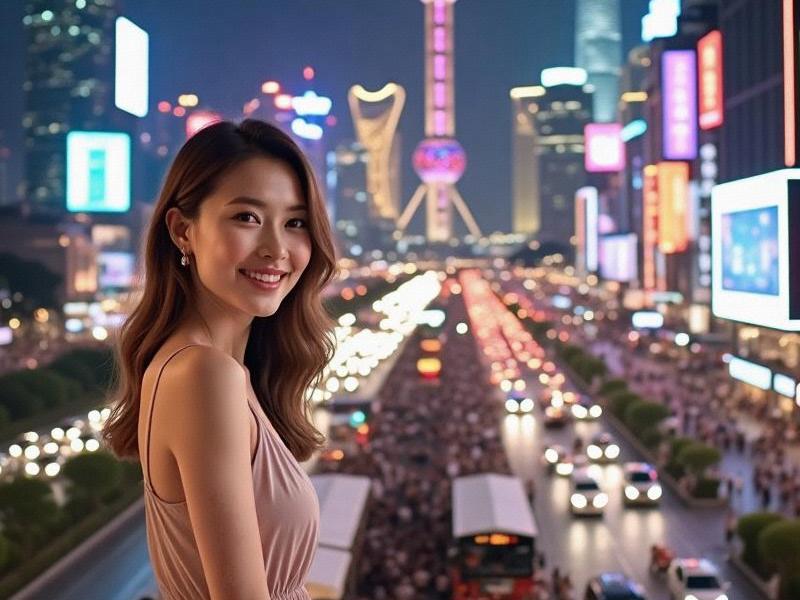
[Article Content - 2,800 words]
The New Golden Age of Shanghai Nightlife
Shanghai's entertainment industry has undergone a remarkable metamorphosis since the early 2000s. What began as simple karaoke bars (KTV) and dance clubs has blossomed into a $4.2 billion nightlife economy that sets trends across Asia. The city now boasts over 3,000 licensed entertainment venues, ranging from intimate jazz bars to sprawling entertainment complexes that operate as self-contained cities of leisure.
The Rise of the "Super Club" Concept
At the forefront of this revolution are Shanghai's mega-entertainment complexes - vast pleasure palaces that combine multiple hospitality concepts under one roof. The recently opened Celestial Dragon Club in Huangpu District exemplifies this trend:
- 18,000 square meter facility spanning 12 floors
- 108 themed VIP rooms with customizable ambiance controls
- Three Michelin-starred dining options
- Full-service spa and business center with translation services
- Blockchain-based membership and payment system
爱上海最新论坛 "We're not just selling entertainment - we're selling complete lifestyle experiences," explains general manager Michael Zhou. "A client might conduct business meetings, host a birthday party, enjoy gourmet dining, and relax with spa treatments - all within our ecosystem."
The Business Entertainment Phenomenon
Shanghai's premium clubs have perfected the art of corporate hospitality:
- 72% of high-end venues report corporate accounts as their primary revenue source
- Average corporate entertainment budget among multinationals: ¥350,000 annually
- Specialized "deal rooms" with soundproofing, document shredders, and privacy screens
At Imperial Garden Club in Pudong, Fortune 500 executives mingle with government officials over rare vintages of Maotai and Louis XIII cognac. "Our most valuable service isn't the alcohol - it's our discreet matchmaking between potential business partners," reveals VIP hostess Sophia Li.
Cultural Fusion and Technological Innovation
爱上海同城419 Shanghai's venues uniquely blend Eastern and Western entertainment concepts:
- Traditional tea ceremonies with electronic dance music performances
- Peking opera reinterpretations in nightclub settings
- AI-powered ambiance systems that adjust lighting and music based on guests' moods
The newly renovated Moon Palace Club features "cultural transition" rooms where patrons can shift between Western cocktail lounge and traditional Chinese courtyard atmospheres via voice command. "We're creating the entertainment equivalent of Shanghainese cuisine - the best of all worlds," says creative director David Wang.
The Regulatory Balancing Act
Shanghai's government has developed one of Asia's most sophisticated regulatory frameworks for nightlife:
- Tiered licensing system with biometric employee registration
- Designated entertainment districts with extended operating hours
上海龙凤419 - Strict hygiene and safety standards enforced through surprise inspections
- "Quality Certification" program for venues meeting premium standards
"Shanghai has found the perfect middle ground between oversight and freedom," notes nightlife economist Professor Emily Chen. "The regulations ensure safety without stifling creativity."
Future Trends Shaping Shanghai's Nightlife
Emerging developments in the sector include:
- "Bio-clubbing" with oxygen bars and vitamin infusion stations
- Holographic performance stages featuring digital recreations of historical Shanghai
- AI concierges that learn guest preferences across multiple venues
- Virtual reality karaoke transporting singers to any global location
- Sustainable club concepts with carbon-neutral operations
As Shanghai prepares to host the 2026 World Hospitality Summit, its entertainment venues stand as monuments to China's growing sophistication in leisure and business entertainment - spaces where culture, commerce and cutting-edge technology converge under the glow of neon lights.
